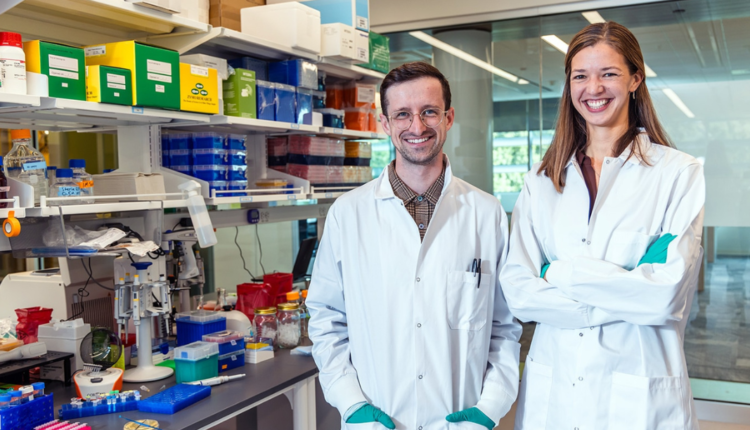
NC State Spinout Believes Cows Can Combat Climate Change
TL/DR –
The startup Hoofprint Biome is developing a novel method to reduce methane emissions from cattle and help combat climate change. The company, which was launched by North Carolina State University (NC State) alumni, seeks to control the gut microbiome of cows through a yeast probiotic carrying special enzymes that could naturally prevent methane production. The founders believe their solution will not only benefit the environment but also improve the health and nutrition of the cattle, as methane production can take up to 10% of a cow’s energy.
NC State University’s Groundbreaking Climate Change Research
As a long-standing agricultural institution, NC State University is aptly placed to contribute significant research in the field of livestock microbiome control. This research holds the potential to impact the global climate positively, due to cows’ significant contribution to greenhouse gas emissions; they produce around 220 pounds of methane (a major driver of climate change) annually.
Startup company, Hoofprint Biome, co-founded by Dr. Scott Collins and Dr. Kathryn Polkoff, both NC State alumni, has taken these findings a step further. They have identified novel enzymes that could inhibit methane production in cattle naturally, improving cattle health and reducing their environmental impact simultaneously.
Hoofprint’s innovative approach involves the use of a yeast probiotic to deliver these special enzymes to the cow’s gut, providing additional health and nutritional benefits. The company aims to develop this enzyme-infused probiotic to enhance livestock health and significantly reduce methane emissions.
Hoofprint Biome’s Journey
Hoofprint Biome’s founders, Collins and Polkoff, first combined forces at NC State with the support of faculty members and the University’s Office of Research Commercialization. Their company is now based at the NC State Plant Sciences Building, where they benefit from the research-rich environment and collaborative opportunities.
The company’s innovative work has attracted significant investment, receiving $2.5 million from New Zealand’s AgriZero fund. AgriZero’s mission aligns seamlessly with Hoofprint’s, aiming to reduce agricultural emissions by 30% by 2030.
Hoofprint’s Future Plans
Hoofprint’s goal is not only to drastically reduce methane emissions but also to provide benefits to cattle farmers. Using Saccharomyces boulardii, a yeast proven to increase feed efficiency in cattle, their methane-reducing enzymes are provided directly to the cow’s digestive system, offering potential health and economic gains for livestock owners.
Ahead, the team at Hoofprint plans to use the funding to conduct initial in vivo trials, testing their probiotic’s efficacy. They aim to deliver an easy-to-use and practical solution to farmers, simplifying the process of reducing cattle’s environmental footprint.
Their ambitious goal? To feed their probiotic product to every cow in the world, significantly cutting down methane emissions and making a sizeable impact on climate change mitigation. Collins highlights the potential of their work, stating, “The beauty of eliminating methane is that it can help cool the climate within 10 years.”
The original article can be found here.
—
Read More US News; North Carolina News
